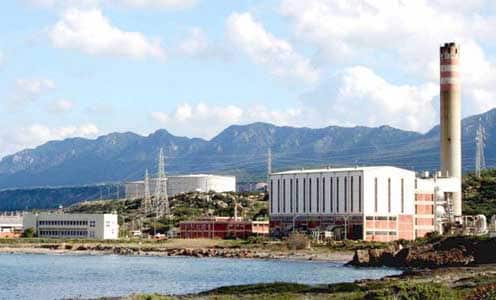By Tom Cleaver
The north’s electricity authority Kib-Tek paid the Republic’s electricity authority (EAC) a total of $2 million (€1.8m) for the supply of electricity during the month of July, Kib-Tek workers’ trade union leader El-Sen leader Ahmet Tugcu said on Wednesday.
Speaking to newspaper Yeni Duzen, he said Kib-Tek is “in a very bad financial situation”, despite having posted a total income of over 1.5 billion TL (€40.7m) in July.
This income and more, he said, was spent in payments to Turkish private energy company Aksa, which owns the Kalecik power station in Galatia, as well as in servicing debts to banks.
In total, he said, 1bn TL (€26.4m) was paid to Aksa in July, while the banks were paid 2bn TL (€52.9m), with these high fees coming about as a result of the “Kalecik 3” procurement contract signed with Aksa a year ago.
The contract was controversial at the time, as, among other things, it stipulated that payments made by Kib-Tek to Aksa be made in United States dollars, and that the Turkish lira to United States dollar exchange rate be calculated as per the day of payment rather than the day of invoice.
This, amid a weakening Turkish lira, has wound up costing Kib-Tek more money than would previously have been forecast.
“Our last Aksa bill came to $17m (€15.3m) because we could not produce [our own electricity], and we had to buy about $2m (€1.8m) from the south in July,” he said.
With Kib-Tek in dire financial straits, he said plans were afoot on the ‘government’s’ side to implement a 15 per cent increase in electricity tariffs, but that this had been put off for two months with one of the ruling coalition parties, the UBP, set to hold its party conference next month.
“They are hiding it because the conference is happening. They have neglected their duty for two months. They call us ‘saboteurs’ but they are the real ‘saboteurs’,” he said, referring to a night of high drama at the Teknecik power station, which is owend by Kib-Tek, in Kyrenia wherein he and ‘prime minister’ Unal Ustel traded verbal insults.
With this in mind, he said, “electricity had to be purchased from both the south and from Aksa at a higher price, and electricity was produced at twice the usual cost after we turned on the mobile power plants.”
He also pointed out that more electricity had been bought from the Republic in June and July than had been produced at the Teknecik power station over the same period, and that the cost of these purchases “had not been included” in calculations which predicated the planned 15 per cent tariff increase.
As such, he said, there would be further subsequent price increases for Turkish Cypriot consumers in the coming months.
However, the good news for Turkish Cypriot consumers is that with summer drawing to a close and the amount of electricity being consumed across the island now beginning to decrease, Tugcu said he does not expect there to be more power cuts in the north, so long as the EAC continues to sell electricity to Kib-Tek.
“So long as the south gives us electricity, there will be no power cuts, because the loads are decreasing. However, if the south stops giving us electricity or if there is a major failure at any power station, there may be a power cut. We do not foresee another power cut.”







Click here to change your cookie preferences